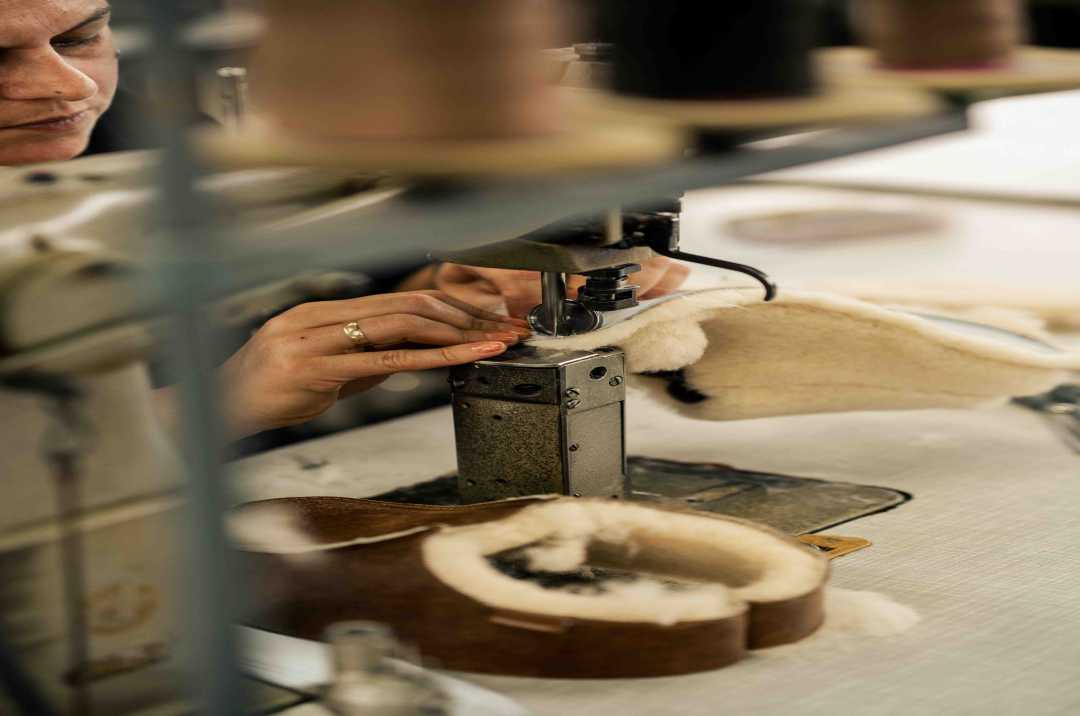Shepherd of Sweden, a company known for its high-quality sheepskin and woolen products, including slippers, shoes, home furnishings, and accessories, has partnered with SGS to assess one of its key footwear manufacturers. Established in 1982 and based in Svenljunga, Sweden, Shepherd of Sweden is committed to maintaining exceptional product quality, which is why it requires its suppliers, such as the Macedonian factory Dimko Mitrev, to meet rigorous standards. Dimko Mitrev accounts for 95% of the factory’s revenue.
Shepherd of Sweden regularly reviews its sourcing practices to determine whether it should maintain production within Europe or explore options in the Far East, especially given rising costs. The company ultimately decided to keep production in Europe due to the benefits of flexibility, reduced lead times, and a smaller carbon footprint. This decision has been crucial in adding value to the brand.
Dimko Mitrev, although well-established, had not updated its processes to meet the evolving demands of Shepherd of Sweden and the broader market. The company’s production methods, particularly in the sewing plant, lacked modern workflows, and inspections were only conducted at the end of the process, leading to high reject rates.
Anders Johannson, Supply Chain Manager at Shepherd of Sweden, sought help from SGS, knowing their expertise in the footwear industry. SGS specialist Philip Truelove recommended a Technical Factory Assessment (TFA) to evaluate the factory’s operations, identifying areas for improvement in production efficiency and quality control. This assessment is a core part of SGS’s Footwear Operational Optimization Technical Service (FOOTS™) program.
The TFA showed that inspecting footwear only at the end of production created minimal opportunities for corrective action, leading to high reject rates. SGS’s approach focuses on improving processes early in the production flow, ensuring issues are addressed proactively. Using a traffic light system, SGS documented the factory’s capabilities and identified key improvements required in process control and employee training.
Following the assessment, SGS created a Corrective Action and Preventative Action (CAPA) plan, highlighting the necessary improvements and prioritizing actions. Key findings included the need for better online process control and enhanced training for employees.
Following the CAPA recommendations, Dimko Mitrev has made significant improvements in employee training and process control. Workers now understand their specific roles in achieving a flawless product, which has shifted the factory’s mindset toward greater pride in their work. The company has also raised employee salaries and introduced an incentive scheme, promoting a more motivated workforce. Additionally, the sewing plant now has only one final inspection instead of two, streamlining the process.
As a result, productivity has risen, and reject rates have decreased. The factory has experienced a noticeable improvement in both output and product quality, as highlighted by Anders Johannson. He emphasized that the key to success has been the change in mindset at the factory, facilitated by training and better process control. Joaquim Loureiro from SGS explained that this process is a key part of a company’s continuous improvement cycle, helping manufacturers address issues and optimize operations in a structured way.
SGS is a global leader in testing, inspection, and certification, with over 145 years of expertise. Operating in over 119 countries, SGS helps businesses achieve high standards of quality, safety, and compliance through its wide range of services. The company’s commitment to trust, integrity, and sustainability supports businesses in thriving confidently in an ever-evolving global market.







